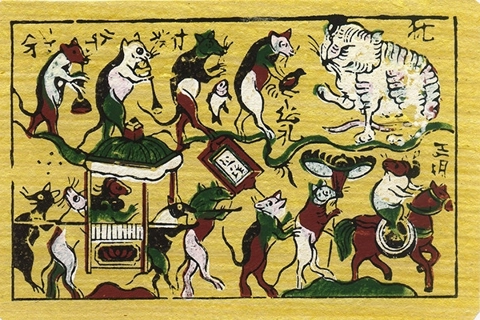Life
Film Screening and Discussion “Ray”
Feb 21, 2017 / 07:19 PM
Screening and discussion of the film about the life and career of blues musician Ray Charles, from his humble beginnings to his meteoric rise to stardom during the 1950s and 1960s.
The film opens in 1948. Young Ray Charles Robinson (Jamie Foxx), the blind son of a sharecropper, boards a bus at a rest stop in northern Florida. Ray lies to the racist bus driver about loosing his sight at Omaha Beach in 1944 during the war to get a free ride. He travels to Seattle, Washington where he uses his unexpected talent for the piano to get a job playing for a nightclub band. The club's owner (Denise Dowse) soon begins to exploit Ray, demanding sexual favors and controlling his money and career. After discovering that he is being lied to and stolen from, Ray leaves the band in disgust.
 In 1950, Ray joins a white country band who make him wear sunglasses to hide his damaged eyes from audiences. They go on tour, and Ray is introduced to heroin. He also suffers from traumatic flashbacks relating to his childhood. The elder of two brothers, Ray is raised by a fiercely independent single mother, Aretha Robinson (Sharon Warren). The family is poor, but young Ray finds solace in music. He learns to play the piano from a man at a local store. At age five, Ray is playing with his younger brother George in front of their house when George slips into their mother's full washbasin. Ray laughs at first, thinking George is goofing off, but becomes paralyzed with shock as his brother's limbs thrash violently in the soapy water, scrambling to escape. Aretha rushes to pull George from the water, but it is too late. Ray feels immense guilt over his brother's death, and begins to develop vision problems soon afterward. By age seven, he is completely blind. His mother teaches him to be independent despite his condition, and makes him swear that he will never let the world "turn him into a cripple." Eventually, she sends Ray to a school for the deaf and blind, weeping as her only remaining son boards a bus and disappears.
In 1950, Ray joins a white country band who make him wear sunglasses to hide his damaged eyes from audiences. They go on tour, and Ray is introduced to heroin. He also suffers from traumatic flashbacks relating to his childhood. The elder of two brothers, Ray is raised by a fiercely independent single mother, Aretha Robinson (Sharon Warren). The family is poor, but young Ray finds solace in music. He learns to play the piano from a man at a local store. At age five, Ray is playing with his younger brother George in front of their house when George slips into their mother's full washbasin. Ray laughs at first, thinking George is goofing off, but becomes paralyzed with shock as his brother's limbs thrash violently in the soapy water, scrambling to escape. Aretha rushes to pull George from the water, but it is too late. Ray feels immense guilt over his brother's death, and begins to develop vision problems soon afterward. By age seven, he is completely blind. His mother teaches him to be independent despite his condition, and makes him swear that he will never let the world "turn him into a cripple." Eventually, she sends Ray to a school for the deaf and blind, weeping as her only remaining son boards a bus and disappears.
As Ray travels on the road, he demands to be paid in single dollar bills so no one can cheat him (since he cannot see the paper notes of the cash). We see another flashback of Ray playing with a country band and the man counting single $1 notes by implying they are $20 to pay Ray. Luckily another band member steps up and demands Ray be paid fairly. As Ray is becoming more and more popular with his music, a man from Atlantic Records discovers him. The man has written a song and offers to let Ray sing it. The song, "The Mess Around" becomes Ray's first hit.
Ray ends up meeting Della Bea, a preacher's daughter. He falls in love with her, and the two get married. Della is not happy about Ray mixing gospel and soul music, but realizes he's got undeniable talent.
Ray goes out on the road, and meets up with Mary Anne, a singer who teams up with Ray. On a trip home, Della Bea finds Ray's drugs in his shaving bag, and demands he stop using. Ray refuses, and walks out on a pregnant Della Bea.
Ray begins an affair with Mary Anne. As Ray's popularity grows, Ray gets a girl trio to become "The Raylettes". Ray immediately falls for Margie's, the lead singer's charms, and the two begin an affair. Mary Anne grows resentful and begs Ray to give her a solo, which he does. Figuring now she's got her name out there, Mary Anne leaves Ray and his band, but not before throwing a brick through the windshield of his car out of jealousy over Ray and Margie.
Another few years later, Ray is out on the road as a headliner, and one night while doing a set, the band finishes early. The owner of the club demands Ray fill the 20 minute slot he has left, and Ray makes up the hit "What I'd Say" on the spot.
During the 1960s, Ray is becoming more and more popular. Ray is offered a better contract with another record label, and although he is loyal to Atlantic, Ray leaves them, but on amicable terms. Ray goes to Atlanta to play a concert, and encounters civil rights protests. Ray protests by saying that he will not play if the black concertgoers have to sit in the balcony. Ray ends up being barred from the state of Georgia.
Another year or so later, Ray then wants to try and do different things with his music, and incorporates classical and country into his sound. Some of his biggest hits come from this mixture, such as "Georgia on My Mind" which Margie says will be Ray's downfall. Ray also records "I Can't Stop Loving You", for which he receives a standing ovation at one concert.
While sleeping in a hotel room, Ray's sleep is interrupted by the police who burst in and arrest him. They tell him that they are acting on an annymous tip that he has drugs in the room and are there to arrest him. Although heroin is found and Ray is charged with posession, he gets off on a legal technicality because the police didn't have a search warrant.
Later, while in a hotel room with Margie, Ray is tinkling on the piano while she gets sick. Margie is pregnant, and demands Ray leave Della and his three children with her. Ray refuses, and Margie is angry. Ray tells Margie to keep her anger, while he literally writes "Hit the Road Jack" complete with Margie's solo. Now that she's got her name out there, Margie leaves the Raylettes to try and make a solo career for herself.
Flashing forward another few years later in the early 1970s, we see Ray and Della Bea move into a huge new house with their kids. Della is uncomfortable in the new house. Ray has to go to Canada for another concert. But when he gets off the plane, he is arrested for possession of heroin at the customs booth. As a result, the Canadian authorities deport Ray back to the USA. The record company has trouble getting him out of this trouble and a judge sentences Ray to go to a treatment clinic. Della and Ray fight about this and the phone rings.
Picking up the phone, Ray learns from someone on the other line that Margie is dead... from a drug overdose. Ray swears to Della that he never turned her onto it and wouldn't let her use it when she was around him. Della says she will start sending money to Ray's child with Margie, but Ray tells Della he already sends him money. Ray goes to a rehab clinic where he suffers from withdrawals and nightmares.
Throughout the movie, in flashbacks, we see how a young Ray slowly went blind nine months after watching his brother die. We see how his fiercely independent mother forces Ray to make his own way in the world and never to let anybody cripple or tell him otherwise just because he is blind. While at the rehab clinic going through painful heroin withdrawals, a now-grown Ray has a conversation with his dead mother, who chastises him for letting drugs cripple him. Ray tries to apologize, but his independent mother won't hear of it. Then his little brother George shows up and tells him that he doesn't blame him for his death.
The movie ends in the year 1979 with Ray getting off drugs for good and receiving his proudest accomplishment. That same year, the state of Georgia officially apologizes to Ray and makes "Georgia On My Mind" the official state song. The movie ends with Ray, Della, and their three grown sons receiving applause after Ray performs the song before a live audience.
Speakers: Curtis Johnson, U.S. Embassy Hanoi
Language: English
Ray will be screened on 22 Feb 2017, 9.30 am – 12.30 pm at American Center Rose Garden Tower, 1st Floor, 170 Ngoc Khanh Street, Hanoi.

As Ray travels on the road, he demands to be paid in single dollar bills so no one can cheat him (since he cannot see the paper notes of the cash). We see another flashback of Ray playing with a country band and the man counting single $1 notes by implying they are $20 to pay Ray. Luckily another band member steps up and demands Ray be paid fairly. As Ray is becoming more and more popular with his music, a man from Atlantic Records discovers him. The man has written a song and offers to let Ray sing it. The song, "The Mess Around" becomes Ray's first hit.
Ray ends up meeting Della Bea, a preacher's daughter. He falls in love with her, and the two get married. Della is not happy about Ray mixing gospel and soul music, but realizes he's got undeniable talent.
Ray goes out on the road, and meets up with Mary Anne, a singer who teams up with Ray. On a trip home, Della Bea finds Ray's drugs in his shaving bag, and demands he stop using. Ray refuses, and walks out on a pregnant Della Bea.
Ray begins an affair with Mary Anne. As Ray's popularity grows, Ray gets a girl trio to become "The Raylettes". Ray immediately falls for Margie's, the lead singer's charms, and the two begin an affair. Mary Anne grows resentful and begs Ray to give her a solo, which he does. Figuring now she's got her name out there, Mary Anne leaves Ray and his band, but not before throwing a brick through the windshield of his car out of jealousy over Ray and Margie.
Another few years later, Ray is out on the road as a headliner, and one night while doing a set, the band finishes early. The owner of the club demands Ray fill the 20 minute slot he has left, and Ray makes up the hit "What I'd Say" on the spot.
During the 1960s, Ray is becoming more and more popular. Ray is offered a better contract with another record label, and although he is loyal to Atlantic, Ray leaves them, but on amicable terms. Ray goes to Atlanta to play a concert, and encounters civil rights protests. Ray protests by saying that he will not play if the black concertgoers have to sit in the balcony. Ray ends up being barred from the state of Georgia.
Another year or so later, Ray then wants to try and do different things with his music, and incorporates classical and country into his sound. Some of his biggest hits come from this mixture, such as "Georgia on My Mind" which Margie says will be Ray's downfall. Ray also records "I Can't Stop Loving You", for which he receives a standing ovation at one concert.
While sleeping in a hotel room, Ray's sleep is interrupted by the police who burst in and arrest him. They tell him that they are acting on an annymous tip that he has drugs in the room and are there to arrest him. Although heroin is found and Ray is charged with posession, he gets off on a legal technicality because the police didn't have a search warrant.
Later, while in a hotel room with Margie, Ray is tinkling on the piano while she gets sick. Margie is pregnant, and demands Ray leave Della and his three children with her. Ray refuses, and Margie is angry. Ray tells Margie to keep her anger, while he literally writes "Hit the Road Jack" complete with Margie's solo. Now that she's got her name out there, Margie leaves the Raylettes to try and make a solo career for herself.
Flashing forward another few years later in the early 1970s, we see Ray and Della Bea move into a huge new house with their kids. Della is uncomfortable in the new house. Ray has to go to Canada for another concert. But when he gets off the plane, he is arrested for possession of heroin at the customs booth. As a result, the Canadian authorities deport Ray back to the USA. The record company has trouble getting him out of this trouble and a judge sentences Ray to go to a treatment clinic. Della and Ray fight about this and the phone rings.
Picking up the phone, Ray learns from someone on the other line that Margie is dead... from a drug overdose. Ray swears to Della that he never turned her onto it and wouldn't let her use it when she was around him. Della says she will start sending money to Ray's child with Margie, but Ray tells Della he already sends him money. Ray goes to a rehab clinic where he suffers from withdrawals and nightmares.
Throughout the movie, in flashbacks, we see how a young Ray slowly went blind nine months after watching his brother die. We see how his fiercely independent mother forces Ray to make his own way in the world and never to let anybody cripple or tell him otherwise just because he is blind. While at the rehab clinic going through painful heroin withdrawals, a now-grown Ray has a conversation with his dead mother, who chastises him for letting drugs cripple him. Ray tries to apologize, but his independent mother won't hear of it. Then his little brother George shows up and tells him that he doesn't blame him for his death.
The movie ends in the year 1979 with Ray getting off drugs for good and receiving his proudest accomplishment. That same year, the state of Georgia officially apologizes to Ray and makes "Georgia On My Mind" the official state song. The movie ends with Ray, Della, and their three grown sons receiving applause after Ray performs the song before a live audience.
Speakers: Curtis Johnson, U.S. Embassy Hanoi
Language: English
Ray will be screened on 22 Feb 2017, 9.30 am – 12.30 pm at American Center Rose Garden Tower, 1st Floor, 170 Ngoc Khanh Street, Hanoi.








